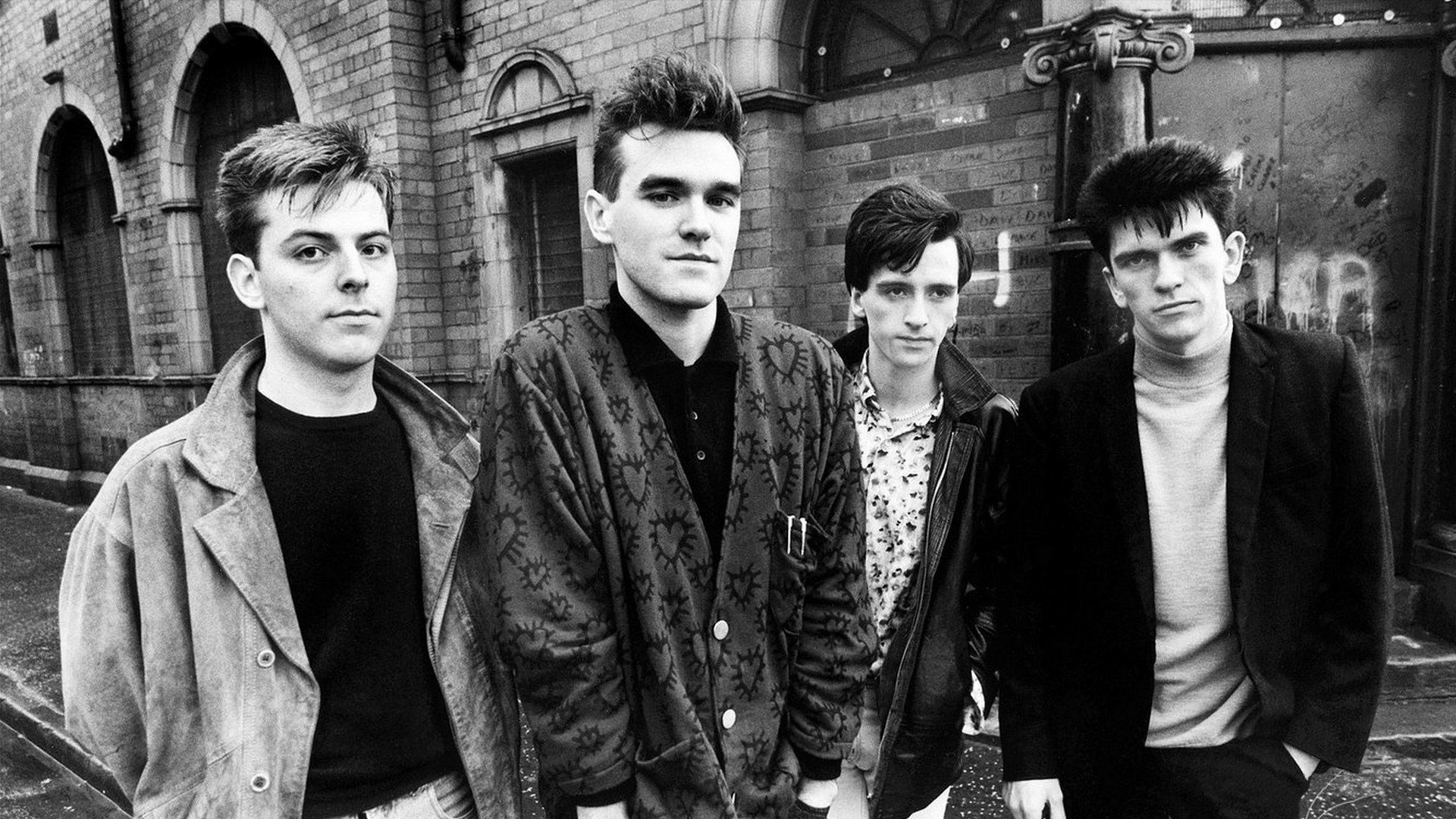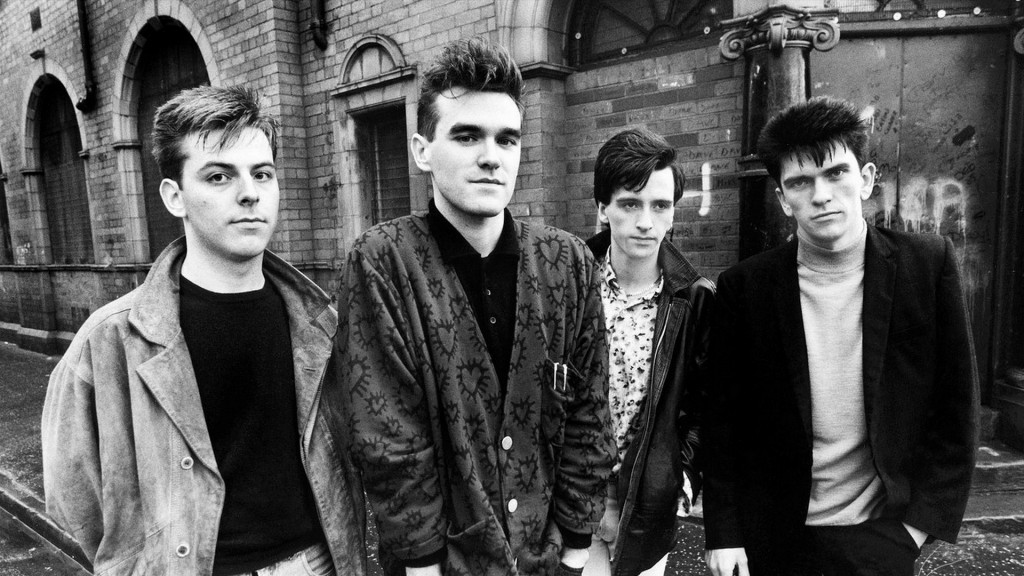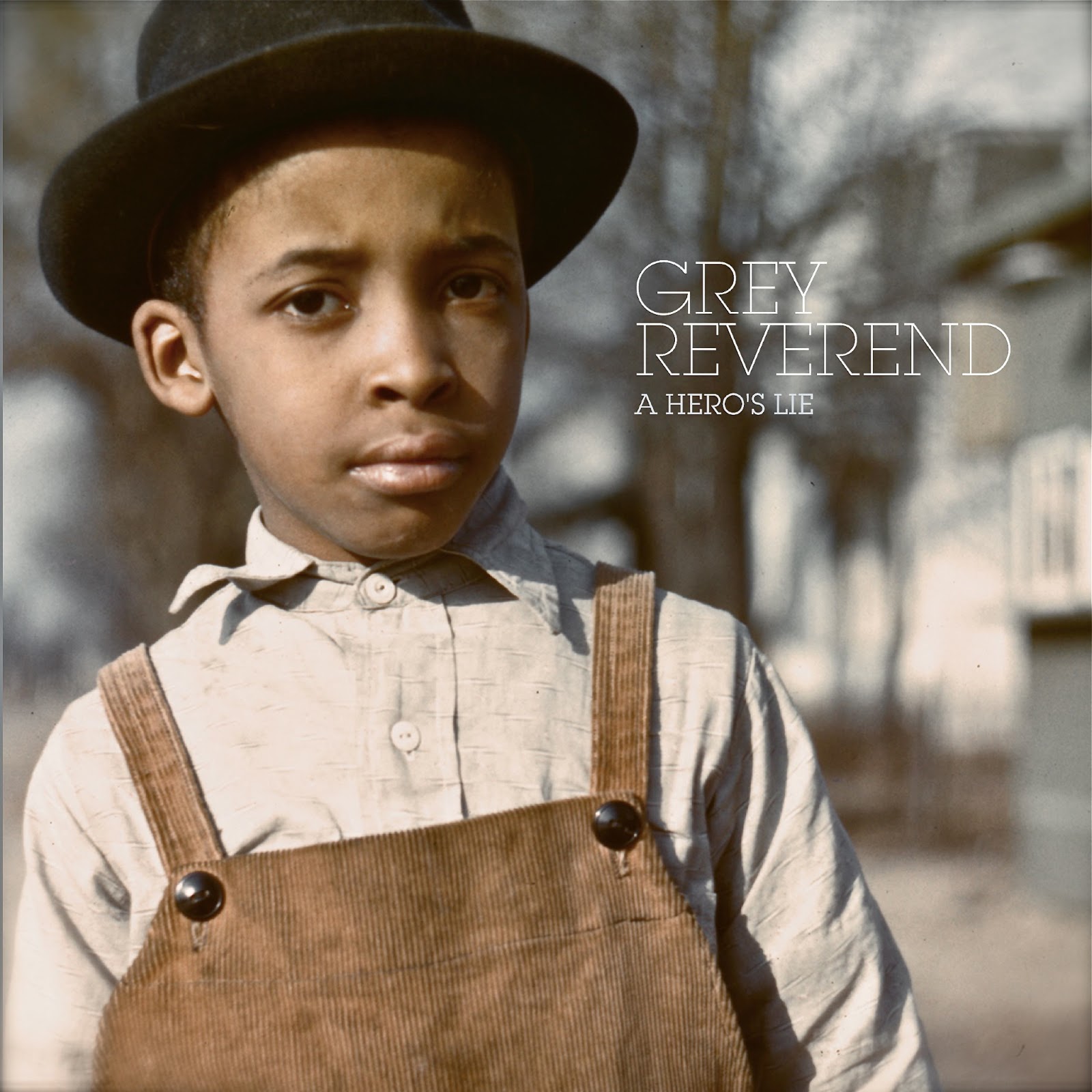On what would have been his 159th birthday (pending a range of frankly inconceivable factors), the status of Oscar Wilde as one of literature’s greatest wits and stylistic visionaries is one completely set in stone. Having permeated the music and lyrics of innumerable composers bands from Prokofiev to the Smiths down the ages, it got us thinking: “Hey, wait a minute! There’s tonnes of songs written about (or that reference) novels and books not necessarily written by Oscar Wilde. That justifies a Spotify playlist, surely?”
Admittedly, not the greatest “Eureka!” moment in history but perservere we did in the name of the following twelve-track Spotify playlist and corresponding descriptions. Read (listen to) it and weep (dance).
“If one plays good music, people don’t listen and if one plays bad music people don’t talk.” – Oscar Wilde
Mastodon – Blood and Thunder
The breathtaking opening track from Mastodon’s 2003 masterstroke Leviathan – hands down one of the finest metal and concept albums of the modern age – ‘Blood & Thunder’ is the first of the release’s ten tracks to loosely re-imagine Herman Melville’s 1851 epic Moby Dick. Featuring none other than Clutch lead singer Neil Fallon, lyrics on the opener including “No man of the flesh could ever stop me/The fight for this fish is a fight to the death” pretty much sum up the crux of Melville’s much celebrated tome.
Nick Cave – Red Right Hand
Like or loathe him, Nick Cave is one of music’s true artisans in occasionally incorporating or alluding to biblical verse and literary folklore sure to shudder the sheer b’jeezus out of the best of us. Having delved into the mythological on the likes of ‘The Lyre of Orpheus’, one of the Australian’s most celebrated and popular songs, ‘Red Right Hand’, references John Milton’s 1667 epic poem Paradise Lost. How do we know this? These lyrics from the superb ‘Song Of Joy’, also by Cave: “Quotes John Milton on the walls in the victim’s blood/The police are investigating at tremendous cost/In my house he wrote ‘his red right hand.'” Where meta meets metatarsal, you could (dare not) quip.
Grant Hart – So Far From Heaven
Speaking of Paradise Lost, ex-Hüsker Dü drummer, songwriter and inventor of indie rock Grant Hart released his fantastic new solo album The Argument earlier this year. A superbly thought-out and constructed concept album based on an unfinished literary/stage adaptation of Milton’s work by none other than Hart’s good friend and linguistic conspirator William S. Burroughs, the album peaks on ‘So Far From Heaven’, a decidedly hushed, doo-wop inspired number that references fallen angels condemned to hell. Features the chord progression that built a thousand homes.
Pixies – Dead
Ahh, the Pixies. Where would any of us be without the Pixies? I’d probably still be listening to the Strokes and Bloc Party, to be honest. And there’s a good chance I would have stumbled across Hot Fuss by the Killers as a seventeen-year old, dedicating one too many evenings wanting to be their drummer for no apparent reason. Did his drum stool have a buzzer on it or something? The man was never seen sat in his life.
Anyway, I’m rambling.
‘Dead’ by Pixies is a brief but brilliant highlight from the pioneering Boston band’s 1989 second album, Doolittle. One of a number of frontman Charles ‘Black Francis/Frank Black’ Michael Kittridge Thompson the Fourth’s terrifically twisted biblical tales, the song retells King David’s seduction of Bathsheba, once wife of Uriah Hittite, as proclaimed in the dusty and musty pages of 2 Samuel 11. The closing lyrical refrain of “Uriah hit the crapper” surely ranks up their great endings to any song, ever … right?
The Smiths – Cemetry Gates
On the eve of the release Morrissey’s long-awaited – Penguin Classic-backed – autobiography, it would be silly of us to talk about references of literature in music without jumping in the Delorean and stopping off at 384 Kings Road, Manchester and beyond to pry upon the novel and play-inspired lyricism of music’s most comprehensively divisive character. Whether you look to the almost literarily crushing ‘How Soon Is Now?’ – a track whose opening line alludes to George Eliot’s imponderably yawnsome 1874 novel/punishment Middlemarch – or the not so obliquely-titled ‘Oscillate Wildly’, Morrissey’s reading habits (and mild plagiarism) often found a place in his lyrics, both with the Smiths and the years since. “Keats and Yeats are on your side/While Wilde is on mine” from the transformatively lovely ‘Cemetry Gates’ remains one of Moz’s most timeless lines.
Sonic Youth – The Sprawl
Pixies, The Smiths… Sonic Youth. It’s almost like I’m listing the patches on the standard half-hip and happening early twenty-something’s bag that they insist upon bringing everywhere. A decidedly sprawling, nigh on eight minute highlight from their one and only true masterpiece, Daydream Nation, ‘The Sprawl’ by Sonic Youth is a direct reference to the colloquial name for the Boston-Atlanta Metropolitan Axis, an urban sprawl environment on a massive scale, in the fiction of Cyberpunk novelist William Gibson. It is also an incredible song that you should open the accompany playlist to listen to, at the very least.
Radiohead – 2+2=5
To think that many of us, at an age when by no means adept at basic arithmetic, have indeed thought that 2 plus 2 makes 5 without even remotely stopping for a second to consider it’s philosophical and political implications as informed by George Orwell’s stupendously accomplished 1949 novel Nineteen-Eighty Four. One of a whole range of entities – musicians, artists, commentators, critics, philosophers, writers or otherwise – to allude to the age-old dogmatic slogan, Radiohead utilised it as a title for the exquisite opening track from their 2003 album Hail To The Thief. Listed with the alternative title ‘The Lukewarm’ on the album’s liner notes, Radiohead main man Thom Yorke has mentioned that the song is also a reference to the works of Dante. He must have took a wee dander into Bargain Books that day, eh?
The Divine Comedy – The Booklovers
The absolute antithesis of say, ‘Cigarettes & Alcohol’ by Oasis, ‘The Booklovers’ by The Divine Comedy (a band of course named after the corresponding epic poem by the aforementioned Dante Alighieri) lists over seventy authors from Aphra Behn to Salman Rushdie. Not exactly a track that you would be advised drop after Auld Lyne Syne at midnight on New Year’s Eve, it nonetheless retain its own quiet and worldly charm, its call-and-response between the album’s “concept couple” proving that little more endearing than it is grating.
The Doors – The End
Famously taking their name from the fantastic Doors of Perception by English writer Aldous Huxley (perhaps most famous for his dystopian classic Brave New World) The Doors were a band that incorporated a poetic and literary spirit that Jim Morrison himself embodied. Having originally been penned about Morrison’s breaking up with his girlfriend Mary Werbelow, the song evolved and grew into the twelve minute masterpiece found at the end of the band’s 1967 self-titled debut album. Drawing from the plentiful lyrical well of Sophocles’ Athenian tragedy Oedipus, the song is a devastatingly bleak yet unquestionably poetic paean to lost love and self.
The Cure – Killing An Arab
The first single by the Cure, released in December 1978, ‘Killing An Arab’ is a sparse post-punk tale echoing the central happenings of Algerian-French writer Albert Camus’ classic 1942 novel L’Étranger (The Stranger). A “short poetic attempt at condensing [Robert Smith’s] impression of the key moments” in the book, there is a certain coldness strewn throughout the short track that almost parallels the absurdist epicentre of the novel, namely Mersault’s murder of the Arab on the beach.
Velvet Underground – Venus In Furs
True story: ‘Venus In Furs’ was once used as incidental music in boundlessly abysmal daytime soap Doctors.
Think about that for a second. And breathe.
Despite the fact he is nowadays about as credible as someone who recurrently and purposely shits themselves on the train, Lou Reed was, of course, once a dab hand at penning remarkable lyrics. Named after a novella by the Austrian author Leopold von Sacher-Masoch (easily one of the the funnest names to say aloud – try it), ‘Venus In Furs’ by Velvet Underground is a phantasmal, wonderfully whining gem from the band’s landmark 1967 debut album, The Velvet Underground & Nico. Heavily influenced by the novel’s primary themes, the track features Reed drawling on about the likes of sadomasochism, bondage and submission – activities only slightly less appealing than the aforelinked travesty of a collaboration.
Kate Bush – Wuthering Heights
‘Wuthering Heights’ is so self-explanatory and self-sustainable as one of the greatest things to have ever happened that one needn’t say much more than: it is one of the few songs in the entire pantheon of pop music that can be listened to on repeat without losing its majesty (that said, ten thousand times more sufferable than the novel of the same name. We get it Heathcliff – you’re not wise, son).






